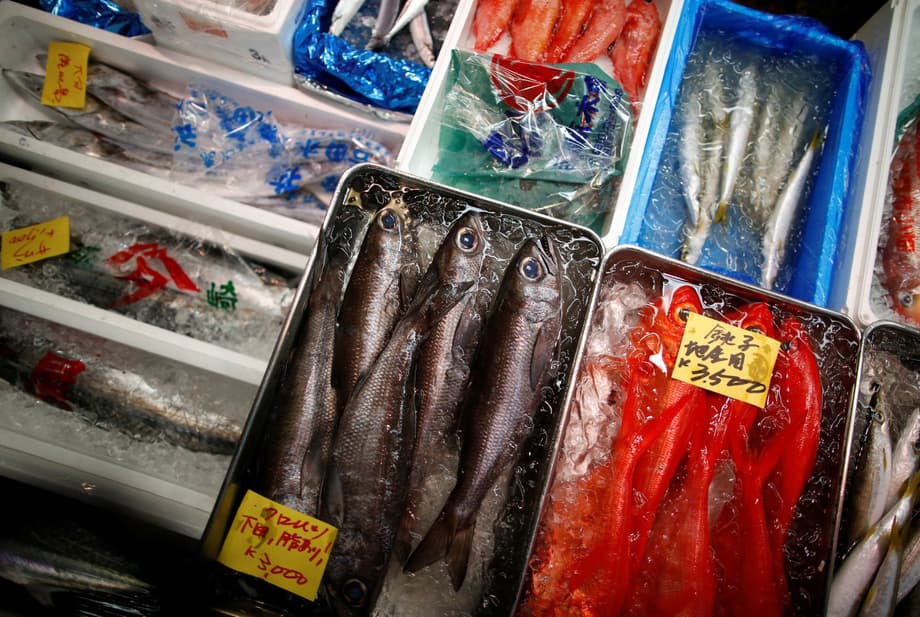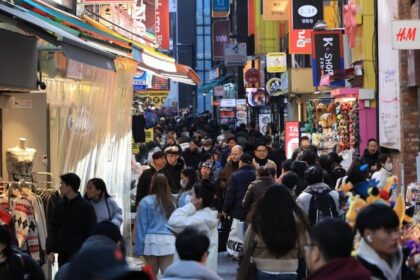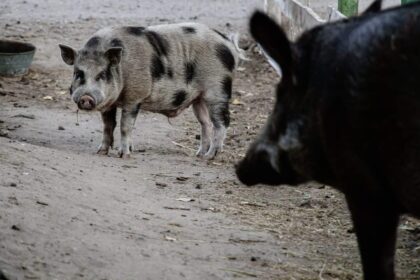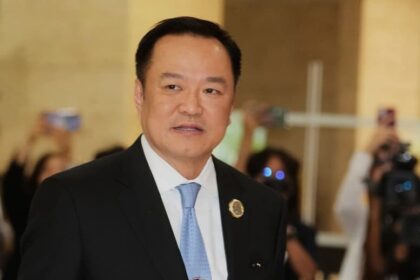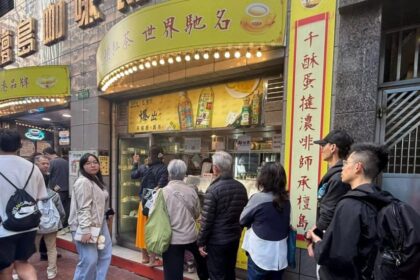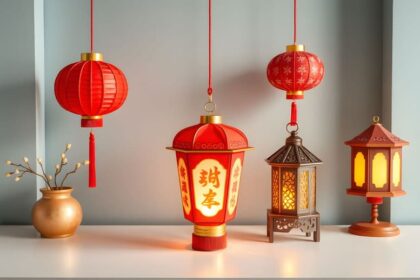Crisis escalates as Beijing targets Japanese seafood
China has warned it will take further measures against Japan unless Prime Minister Sanae Takaichi retracts remarks on Taiwan, and it has moved to block Japanese seafood imports again only weeks after easing earlier restrictions. The foreign ministry said her comments undermined the political foundation of ties. Officials also hinted at penalties that could extend beyond trade, signaling a rapid downturn in relations after Takaichi linked a Taiwan conflict to Japan’s national security.
Chinese authorities have told Tokyo they are suspending imports of Japanese aquatic products after a brief restart earlier this month. The previous halt began in August 2023, following Japan’s discharge of treated water from the Fukushima Daiichi nuclear plant. The latest step comes amid anger in Beijing over Takaichi’s remarks that a Chinese attack on Taiwan could be treated as a situation that threatens Japan’s survival, a legal threshold that would allow a military response by Japan’s Self Defense Forces. Beijing has demanded a retraction and warned of consequences.
Before the bans, China and Hong Kong bought a large share of Japanese seafood. Including Hong Kong, the market accounted for roughly one third of Japan’s seafood exports in 2022. Excluding Hong Kong, the Chinese mainland still took just over one fifth. Chinese officials now say there is strong public outrage, and that even if shipments entered China, there would be no market for fish, scallops and other products. A much publicized six tonne shipment of frozen Hokkaido scallops earlier in November, the first since last year, now looks like an exception rather than the start of a broader recovery.
What did Japan’s leader say and why it matters
In reply to questions in parliament, Takaichi said that a Chinese attack on Taiwan could qualify as a situation that threatens Japan’s survival. That phrase is not rhetoric. It is an important legal category. If such a situation is declared, Japan can exercise limited collective self defense to protect the country even if its own territory is not directly attacked.
Japan’s security law explained
Japan’s pacifist constitution renounces war, and for decades governments avoided any role in the defense of others. In 2015, legislation clarified that Japan may use force in strictly defined cases that endanger the nation’s survival and the lives and freedoms of its people. The government must judge that there are no other appropriate means and that any force used is the minimum necessary. This change, debated at length at the time, was framed as a response to new threats in East Asia and the need to strengthen the alliance with the United States. Even so, previous leaders were careful not to frame Taiwan explicitly as a scenario that could trigger this threshold.
Takaichi’s choice of words made that link clear, which is why Beijing reacted so strongly. China claims Taiwan as part of its territory and treats statements by foreign leaders about the island’s defense as interference in its internal affairs. Tokyo says its basic position has not changed. Japan maintains only unofficial ties with Taipei and recognizes the government in Beijing, while calling for peace and stability across the Taiwan Strait.
Facing the backlash, Takaichi later described her comments as hypothetical and said she would refrain from similar language in parliament. She did not retract them. The Chinese side has continued to insist that she withdraw the remarks. State media said a retraction of the prime minister’s words and deeds is the only correct approach for Japan, a rare direct demand aimed at a sitting Japanese leader.
China’s countermeasures and rhetoric
Beijing has paired the seafood halt with threats of broader steps. Officials have spoken of “severe and resolute” actions if Japan does not back down. Alongside trade moves, the government has advised Chinese citizens to avoid travel to Japan and urged students to reconsider studying there. Airlines offered refunds or free changes on Japan routes. Cultural exchanges and official contacts are also under strain.
At a regular briefing, foreign ministry spokeswoman Mao Ning warned that Japan must change course or face consequences. After describing Takaichi’s comments as damaging, she set out Beijing’s demand in blunt terms.
Mao Ning said: “Japan should first retract these wrong statements and take concrete steps to uphold the political foundation of bilateral relations. Otherwise, China will be compelled to take further measures.”
From trade to travel: tools of pressure
China told Japan that import procedures for seafood were insufficient and signaled a blanket halt after a short reopening. Talks on resuming Chinese imports of Japanese beef, halted since 2001, were also suspended. Intergovernmental meetings have been postponed, including a planned culture ministers gathering with South Korea. Chinese distributors have delayed releases of Japanese films, and authorities criticized Tokyo’s bid for a permanent United Nations Security Council seat.
Beijing’s pressure has extended to the East China Sea. A Chinese coast guard formation passed through waters near the Japan-administered Senkaku Islands, which China calls Diaoyu. These contested islets have sparked repeated standoffs, and incidents at sea raise the risk of miscalculation. China also signaled it could add Japanese firms to an unreliable entity list, a step that can restrict business activity in the Chinese market.
Trade and industry fallout
Japan’s seafood sector is among the most exposed. Before the bans, China including Hong Kong was the top overseas market for scallops, sea cucumbers and other high value products. Industry groups say the sector is still recovering from the 2023 halt. The latest suspension hits just as hundreds of companies had re-registered with Chinese authorities and planned to restart shipments. Analysts note that once buyers switch suppliers, winning back shelf space can be difficult even when politics cools.
China is Japan’s largest trading partner, purchasing an estimated 125 billion dollars of Japanese goods in 2024, dominated by industrial machinery, semiconductors and automobiles. If Beijing broadens restrictions beyond seafood, Japanese exporters would face a difficult search for replacement markets. Memories linger of 2010, when China curbed rare earth shipments to Japan during a maritime dispute, disrupting supply chains for months.
Restaurants and retailers are already feeling the strain. Japanese eateries in cities like Shanghai report customer frustration with substitutes for popular imports. Tourism operators in Japan say cancellations are piling up after China’s travel advisory. One Tokyo-based tour company reported losing most of its bookings for the year as group tours were called off. Japanese officials, meanwhile, say they have not received formal notice of a renewed blanket ban and have urged China to allow shipments to proceed smoothly.
Fukushima water dispute returns to the fore
Beijing says more monitoring of water released from the Fukushima plant is needed, reviving a fight that began when Japan started discharges in 2023. The water has been filtered through the Advanced Liquid Processing System to remove most radionuclides and diluted before release. International nuclear experts have assessed that the plan meets safety standards, and the discharges are monitored. China has rejected those assurances and framed the issue as a public health risk.
After the blanket ban in 2023, China and Japan had discussed a gradual reopening. Some purchases resumed only in early November, while a separate restriction remained on products from ten Japanese prefectures, including Fukushima and Miyagi. The new suspension resets that progress, leaving producers in coastal regions with excess inventory and higher logistics costs as they seek alternative buyers in Southeast Asia, Europe and the United States.
Regional and international reactions
Taiwan has been pulled into the diplomatic crosswinds. President Lai Ching-te posted photos of a lunch featuring Japanese-sourced sushi, including Hokkaido scallops and yellowtail, in a show of support for Japan’s fishermen. Taiwan has faced similar trade pressure from China in recent years, from pineapples to fish, and sees economic coercion as part of a broader pattern.
Taiwan’s foreign minister, Lin Chia-lung, condemned Beijing’s tactics and voiced solidarity with Tokyo.
Lin Chia-lung said: “At this critical juncture, Taiwan must also support Japan in effectively stabilizing the situation and halting the Chinese communists’ bullying behavior.”
The United States has signaled support for its treaty ally. Washington opposes any attempt to change the status quo in the Taiwan Strait by force and continues to supply defensive arms to Taiwan under domestic law. The US-Japan alliance is central to regional security planning, and American officials have encouraged calm while backing Japan’s right to speak to its own defense under its laws.
The political temperature rose further after a now-deleted social media post by China’s consul general in Osaka. Tokyo summoned the Chinese ambassador to protest, and lawmakers in Japan called for a firm response.
The consul general, Xue Jian, wrote: “The dirty head that sticks itself in must be cut off,” in reference to Takaichi’s Taiwan remarks.
What comes next for China and Japan
Beijing’s immediate demand is clear: a retraction of Takaichi’s remarks. Without it, Chinese officials have threatened additional steps, from tighter customs controls to measures against specific Japanese companies. The seafood halt could be followed by administrative checks that slow other imports, more limits on cultural exchanges, and a harder line on travel and education. State media have kept up pressure and warned of consequences if Tokyo does not change course.
Both governments have reasons to keep channels open. China is a crucial market for Japanese firms, and Japan is a major investor in Chinese industry. Senior diplomats met in Beijing, but the talks ended without a breakthrough. Chinese leaders declined a meeting with Takaichi on the sidelines of upcoming international gatherings. The two sides remain divided over Taiwan and maritime disputes, yet each has an interest in avoiding an uncontrolled spiral. Concrete steps such as technical consultations on Fukushima monitoring, or a limited easing of travel advisories, could be used to steady the relationship if political will exists on both sides.
What to Know
- China has reimposed a suspension on Japanese seafood imports and warned of further actions unless Prime Minister Sanae Takaichi retracts remarks on Taiwan.
- Takaichi said a Taiwan attack could be treated as a situation that threatens Japan’s survival, a threshold that allows limited collective self defense under Japan’s 2015 security laws.
- Beijing demanded a retraction, saying the remarks damage the political foundation of ties, and warned there would be consequences for Japan.
- Before bans, China and Hong Kong bought about one third of Japan’s seafood exports in 2022, while the mainland alone took just over one fifth.
- China paired the trade move with travel warnings, student advisories, and cultural suspensions, and signaled potential action against Japanese firms.
- Talks on resuming Chinese imports of Japanese beef were halted, and a culture ministers meeting with Japan and South Korea was postponed.
- China’s coast guard sailed near the Senkaku Islands, highlighting a separate flashpoint in the East China Sea.
- Taiwan’s president publicly supported Japanese seafood, and the island’s foreign minister condemned Chinese pressure on Tokyo.
- Japanese officials say policy has not changed and have urged China to allow seafood exports to proceed; no formal notice of a blanket ban has been acknowledged by Tokyo.


